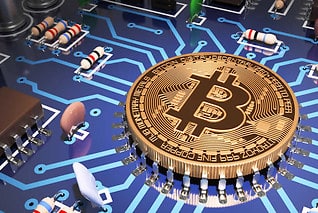In a context where the ban on Bitcoin (BTC) mining in China has greatly affected the hash rate of the flagship crypto, the need to diversify mining sources and further decentralize the activity has imposed itself on industry players. Even if currently, the United States has already filled the gap in the hashing power that was in China and the activity has regained peaks, the question of its decentralization still arises. It is important for the sector to limit the impact of a possible occurrence of a similar phenomenon, by multiplying bitcoin mining sites in various jurisdictions. Knowing that the sites of abundant energy production are located in remote areas, Internet connectivity can be a big challenge for mining players who will want to take advantage of these energy sources.

Improving connectivity in remote energy-supplied areas
Elon Musk’s Starlink could be the missing piece for the decentralization of Bitcoin (BTC) mining to reach regions of the world where energy is cheap, but where internet access is lacking. This is in essence what has developed, in a editorial, El Sultan Bitcoin, product marketing manager in Latin America at Ledn. It is a Canadian company specializing in the provision of financial services in bitcoin (BTC).
The company, created by Elon Musk, has set itself the mission of developing its broadband Internet system around the world, especially in the regions of the earth that are least connected today, including South and East Asia, and Africa. A total of 3 billion people do not have quality access to connectivity.
While remote regions such as Quebec in Canada and Sichuan in China produce affordable energy in excess, they can be home to large bitcoin mining farms, but when we talk about remote energy production sites, Internet connectivity can be a big problem, when we know that traditional Internet access providers only provide very little power to remote areas.
“It is not difficult to imagine that miners subsidize the costs of Starlink in rural areas in order to exploit the lost energy while allowing Internet connectivity, given that a bitcoin miner is powering greenhouses in the Netherlands. If waste heat generation is subsidized to grow food and bloom flowers in one place, the same could be true for setting up Internet-based services in unconnected areas in exchange for newly mined bitcoins. It would also be interesting to see how this could contribute to reducing the centralization of the network by Internet service providers”, he wrote.
Affordable costs
You should know that Internet service providers usually do not provide power to remote areas.
In addition, 60% of all Internet traffic in the bitcoin mining industry is provided by three ISPs, according to DARPA, an agency of the US Department of Defense responsible for research and development of new technologies intended for military use. This data calls for more diversification of sources of Internet access for mining players.
In addition, El Sultan Bitcoin believes, for a multi-million dollar mining operation, that access to a Starlink Internet service should not be a big problem. Indeed, the importance of the revenues from the activity means that the connectivity costs appear minimal on the income statement. It should be noted that the cost of the equipment necessary to set up a Starlink access point in a remote area is around $ 600, plus a monthly subscription of $ 3,000.
For El Sultan Bitcoin, thanks to its broadband Internet deployment technology, Starlink can be a key player in efforts to stimulate the growth of Bitcoin (BTC) mining decentralization. This, by developing farms in remote areas where electricity demand is lower than production, but where Internet access is difficult.
Receive a digest of the news in the world of cryptocurrencies by subscribing to our new daily and weekly newsletter service so you don’t miss anything essential Cointribune!
Far from having cooled my ardor, an unsuccessful investment in 2017 on a cryptocurrency only increased my enthusiasm. I therefore resolved to study and understand the blockchain and its many uses and to relay information related to this ecosystem with my pen.

